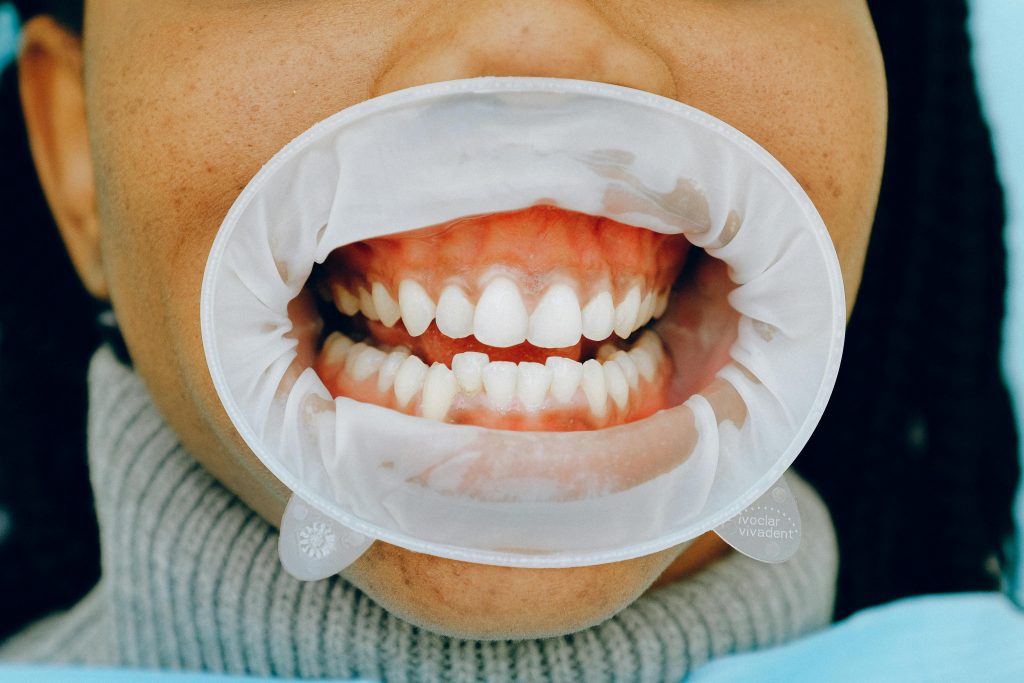Gingivitis and periodontitis are the two most commonly prevailing gum diseases across the world. Gingivitis is swelling of gums and is a mild form of gum disease, if left untreated it can lead to severe problems leading to tooth loss.
Periodontitis is a recession of gums and bone loss, due to gum recession roots of teeth become exposed causing pain & sensitivity.
Causes of gum Diseases:
The causes of gum diseases vary from local to systemic. The most common cause of gum disease is poor oral hygiene, which involves improper teeth brushing, and inadequate use of dental floss. Systemic causes involve genetics, systemic diseases, tobacco use and hormonal changes during puberty, at the time of pregnancy and after menopause.
1-Poor Oral Hygiene:
Inadequate teeth brushing and no flossing leads to plaque deposits on teeth which hardens gradually, becoming tartar causing swelling of gums, which ultimately leads to bleeding gums and a number of dental problems.
2-Tobacco use:
Smoking & tobacco chewing weakens the immune system, slows down the overall healing process, decreases the body’s ability to fight infections and increases the risk of gum diseases.
3-Hormonal changes:
Hormonal changes at the time of puberty, during pregnancy & after menopause increase the risk of inflammation of the gums. You need to be more careful about your oral hygiene habits during these phases of life. With healthy oral hygiene habits and proper oral care, you can avoid gum problems during hormonal fluctuations.
3-Systemic diseases:
Autoimmune systemic diseases like diabetes and HIV/AIDS weaken the immune system, decreasing the body’s ability to fight infections, including oral infections and making your oral environment specifically gums prone to infections.
4-Medications:
Certain medications cause gum problems like inflammation (swelling) and bleeding of the gums. Medications that affect gum health include antidepressants and blood pressure medicine. These medicines cause dryness of the mouth which increases the risk of gum diseases & other dental problems.
5-Genetics:
If you have a family history of gingivitis and bleeding gums, you are at high risk of gum diseases and you need to make an extra effort to maintain your oral hygiene to prevent gum disease, which involves proper brushing and flossing.

Prevention of Gum diseases:
Let me give you some tips to maintain healthy gums and a beautiful smile. You can practise th
2-Regular Dental checkup: Visit your dentist two times a year for a routine dental checkup, for early diagnosis of any dental issue.
If you go for dental checkups timely your dentist can detect the problem at the initial stage and can give you a better treatment plan. Early diagnosis can help you avoid unnecessary costs due to extensive dental procedures. As we say in dentistry “ Dentistry is not expensive, ignorance is.”
3- Healthy lifestyle: Eat a balanced diet full of vitamins, minerals and nutrients, specifically vitamin C as vitamin C is very good for gums health, it helps with bleeding gums.
Vitamin C deficiency can cause a disease called “Scurvy”, which causes severe bleeding of gums.
Avoid smoking and use of tobacco as tobacco decreases immunity, and the ability to fight infections including gum infections.
4- Increase water intake with medications: If you are taking treatment for hypertension (high blood pressure) or taking antidepressants you should increase your water intake to reduce dryness of mouth because dryness of mouth leads to gum diseases and dental caries.
5- Monitor hormonal imbalance: Pay extra attention to your oral hygiene routine while going through hormonal imbalance during puberty, pregnancy and menopause.
Treatment of gum diseases:
1-Scaling and root planing: Professional teeth cleaning is required to remove plaque and tartar from the teeth which let the gums heal and stop bleeding.
“Healthy gums guarantee a healthy life.”
2-Medications: Your dentist may prescribe you antibiotics and medicated mouthwashes & toothpaste to kill bacteria and treat inflamed gums to stop bleeding.
You should not use medicated toothpaste for more than the duration prescribed by your dentist.
3-Surgical interventions: Advanced forms of gum diseases require surgical treatments such as gingivectomy, and osseous surgery/bone graft to repair damaged gums & promote healing of gums.
A complete understanding of the causes of gums diseases, practising preventive measures and getting early diagnosis & treatment can give you healthy gums and a beautiful smile.
4-Lifestyle changes:
– Quit smoking
– Control diabetes (blood sugar levels)
– Maintain good oral hygiene habits
5-Perio Maintenance:
After getting gums treatment ongoing maintenance is important which includes frequent dental visits, regular professional cleanings and complete oral evaluations.
Book an appointment with your dentist for a complete oral evaluation and say goodbye to Gum diseases as “prevention is better than Cure”.
